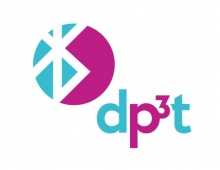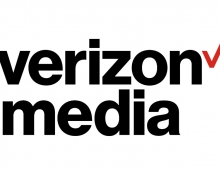
U.S. House of Representatives Passes CISPA
Today, Internet freedom advocates everywhere turned their eyes to the U.S. House of Representatives as that legislative body considered the Cyber Intelligence Sharing and Protection Act.
The House voted to approve CISPA, a controversial bill that would allow companies to bypass all existing privacy law and would authorize e-mail and Internet providers to share confidential information with the federal government.
The legislation passed 288-127, despite a veto threat from Pres. Barack Obama, who expressed serious concerns about the danger CISPA poses to civil liberties.
Supporters argue the legislation is needed to encourage better information sharing about active cyberattacks, resulting in better defense of U.S. networks. Federal law now prohibits intelligence agencies from sharing classified cyberthreat information with private companies.
CISPA is "so important to our national security" that it must be adopted, said Rep. Mike Rogers, a Michigan Republican who authored CISPA and heads the House Intelligence Committee.
"This is not a surveillance bill," Rogers said during the floor debate. "It does not allow the national security agencies or the Department of Defense or our military ... to monitor our domestic networks."
However, EFF, a donor-supported membership organization working to protect fundamental rights, condemns the vote in the House and vows to continue the fight in the Senate.
"CISPA is a poorly drafted bill that would provide a gaping exception to bedrock privacy law," EFF Senior Staff Attorney Kurt Opsahl said. "While we all agree that our nation needs to address pressing Internet security issues, this bill sacrifices online privacy while failing to take common-sense steps to improve security."
"This bill undermines the privacy of millions of Internet users," said Rainey Reitman, EFF Activism Director. "Hundreds of thousands of Internet users opposed this bill, joining the White House and Internet security experts in voicing concerns about the civil liberties ramifications of CISPA. We?re committed to taking this fight to the Senate and fighting to ensure no law which would be so detrimental to online privacy is passed on our watch."
The bill would still need to be passed by the U.S. Senate before heading to President Barack Obama for his signature.
The legislation passed 288-127, despite a veto threat from Pres. Barack Obama, who expressed serious concerns about the danger CISPA poses to civil liberties.
Supporters argue the legislation is needed to encourage better information sharing about active cyberattacks, resulting in better defense of U.S. networks. Federal law now prohibits intelligence agencies from sharing classified cyberthreat information with private companies.
CISPA is "so important to our national security" that it must be adopted, said Rep. Mike Rogers, a Michigan Republican who authored CISPA and heads the House Intelligence Committee.
"This is not a surveillance bill," Rogers said during the floor debate. "It does not allow the national security agencies or the Department of Defense or our military ... to monitor our domestic networks."
However, EFF, a donor-supported membership organization working to protect fundamental rights, condemns the vote in the House and vows to continue the fight in the Senate.
"CISPA is a poorly drafted bill that would provide a gaping exception to bedrock privacy law," EFF Senior Staff Attorney Kurt Opsahl said. "While we all agree that our nation needs to address pressing Internet security issues, this bill sacrifices online privacy while failing to take common-sense steps to improve security."
"This bill undermines the privacy of millions of Internet users," said Rainey Reitman, EFF Activism Director. "Hundreds of thousands of Internet users opposed this bill, joining the White House and Internet security experts in voicing concerns about the civil liberties ramifications of CISPA. We?re committed to taking this fight to the Senate and fighting to ensure no law which would be so detrimental to online privacy is passed on our watch."
The bill would still need to be passed by the U.S. Senate before heading to President Barack Obama for his signature.





















